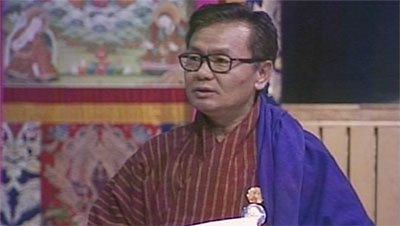 The National Council decided to seek the opinion of the Supreme Court on the Ministers and Minister Equivalent Post Holders’ Entitlement Bill of the Kingdom of Bhutan 2019 following National Assembly’s decision not to discuss the Bill.
The National Council decided to seek the opinion of the Supreme Court on the Ministers and Minister Equivalent Post Holders’ Entitlement Bill of the Kingdom of Bhutan 2019 following National Assembly’s decision not to discuss the Bill.
The Council will seek the opinion on the constitutionality or legality of the decision of a House of Parliament not to discuss the Bill that originated from another House. This was proposed by the Legislative Committee.
The Bill which was passed in the 23rd session of the National Council last year was forwarded to the National Assembly for deliberation in this session. However, the National Assembly decided not to discuss it in the first reading itself. Three reasons were provided, The entitlements proposed in the Bill are inconsistent with the recommendations of the pay commission, the proposed entitlements would place immense budgetary pressure on the exchequer, as they would become legal entitlements once enacted into law and to streamline the number of laws in the country and consider consolidating entitlements laws into a single law at a future date.
Along with Impeachment Procedure Bill 2019, the National Council initiated to discuss with the National Assembly and suggested ways forward. The National Assembly, however, refused to discuss the Bill. But unlike Impeachment Procedure Bill, the National Assembly did not request the National Council to withdraw the bill.
As per the House, in 12 years of democracy, there has never been a time when one House simply refused to discuss Bills passed by another House.
 “There are constitutionally only two options for the other House after one House has passed a bill. It can either pass the Bill, in which case it submits to His Majesty for Royal Assent or not pass it in which case it returns the Bill to the House in which it originated with amendments and objections. The option of not discussing the Bill does not arise. Other than Money Bill, both the Houses has an equal right over other Bills. National Assembly rejecting this Bill is against the constitution which gives equal rights to both the Houses,” said Choining Dorji, the Chairperson of the Legislative Committee.
“There are constitutionally only two options for the other House after one House has passed a bill. It can either pass the Bill, in which case it submits to His Majesty for Royal Assent or not pass it in which case it returns the Bill to the House in which it originated with amendments and objections. The option of not discussing the Bill does not arise. Other than Money Bill, both the Houses has an equal right over other Bills. National Assembly rejecting this Bill is against the constitution which gives equal rights to both the Houses,” said Choining Dorji, the Chairperson of the Legislative Committee.
Proposing the way forward, the Chairperson stated that National Council can let these questions be unanswered and submit the Bill for Royal Assent as deemed passed. However, he said the risks are too much as it not only sets bad precedent but also the certainty of these situations and questions arising too often in future. The people of Bhutan and the credibility of democracy will eventually come to suffer.
According to the members, the letter sent from National Assembly to the Council invoked sections 193 and 200 of the National Assembly Act as the basis for its decision not to discuss the Bill. Section 193 pertains to the fact that Bill, either passed or rejected will not be reintroduced in the National Assembly in that year except by leave of the assembly. To this, the council explained that the Entitlement Bill has neither been passed nor rejected. To pass or reject a bill, all legislative stages such as first reading, second reading and third reading followed by discussion and voting must be completed.
The members also shared the same concerns as the Committee and adopted the proposal with all the 22 members voting for the proposal.
Samten Dolkar








